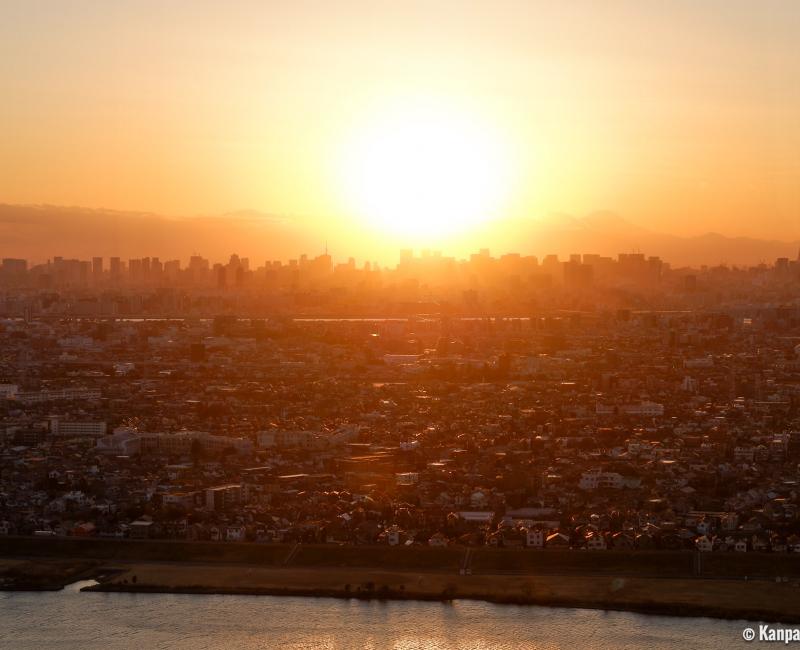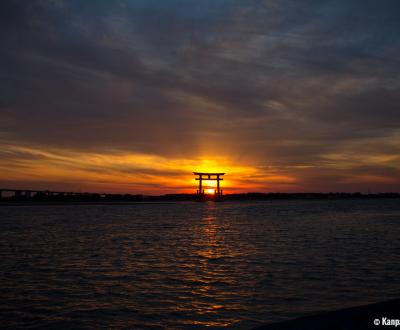The Land of the Rising Sun
Ode to Early Birds
The popular metaphor "land of the rising sun" is frequently used to described the archipelago. In Japanese language, 日本 Nihon, the native name of Japan, means the "origin of the sun".
Prince Shôtoku, who was a regent of the Asuka period (latter half of the 6th century to 710), is the one usually said to have coined the term that became official afterward. In a correspondence with the emperor of China, he wrote about the two countries respectively as:
- The lands where the sun rises - 日いずる hi izuru, "izuru" being an ancient form of 出る, and,
- The lands where the sun sets - 日没する hi bossuru.
The wording choice was quite rational as Japan is located east to China and China west to Japan. The sun disk has become the symbol of the Japanese archipelago ever since.
One of the traditions to celebrate the New Year in Japan is to admire the first sunrise of the year, called hatsuhinode (初日の出), from an observation deck on a height or from a beach 🏖 oriented toward east. In summer, the climbing of Mount Fuji 🗻 at night is rewarded by the contemplation of sunrise from the volcano 🌋’s summit.
But being the "land of the rising sun" involves certain particularities in Japan’s daily life, and especially regarding the daytime, which is often surprising for foreign visitors.

At what time does the sun rise in Japan?
On average, the sun rises in Japan at 4:30 a.m. in summer at the earliest and at 7 a.m. in winter at the latest.
In Tokyo in summer, for example, the sun appears near 4:30 a.m. and disappears around 7 p.m. The course of the sun in southward Kyushu Island is usually delayed by half and hour compared to the mainland. You can check this Website for example to know Tokyo’s detailed hours of sunrise and sunset.
In any case, if you are a light sleeper, do not forget your sleep mask 😷, as Japanese accommodations are not always fitted with blackout curtains.

At what time does the sun set in Japan?
On average, the sun sets in Japan at 4:30 p.m. in winter at the earliest and 7 p.m. in summer at the latest.
In winter, an average of four hours of daylight are lost, which can worsen some travelers’ jet lag 🕓 feelings.
On a side note, contrary to Westerners who are fond of sunbathing to the risk of damaging their skin, the Japanese tend to hide from the sun. Thus, women most typically, go to the extend of wearing long sleeves, using umbrellas and excessively long visors to shade their skin from the sun. The 1990s ganguro fashion is definitively in the past!


